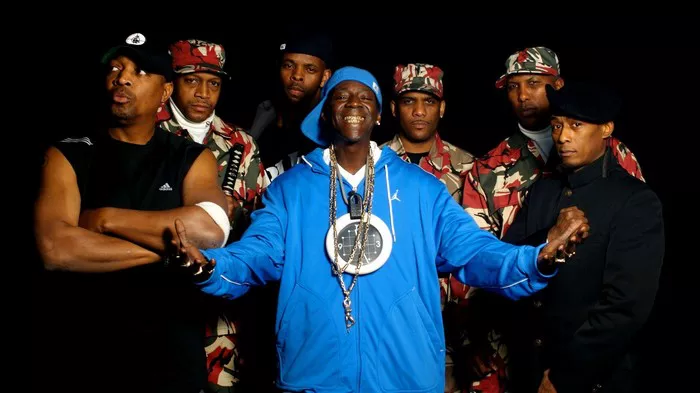In the ever-evolving landscape of hip-hop music, the quest to determine the best rapper of all time is a topic that has sparked endless debates and discussions among enthusiasts. From lyrical prowess to cultural impact, numerous criteria are used to evaluate the mastery and influence of an artist. This article delves into the realm of rap’s elite, presenting the top five rappers of all time, examining the criteria used for this designation, exploring diverse opinions, and highlighting popular rankings and lists that have attempted to quantify greatness.
Top Five Rappers of All Time:
While selecting the top five rappers of all time is a subjective endeavor, certain artists have consistently emerged as frontrunners in discussions. The following legendary individuals have left an indelible mark on the genre and have become synonymous with rap excellence:
Tupac Shakur, also known as 2Pac, is regarded as one of the most influential figures in rap history. His thought-provoking lyrics, poetic storytelling, and passionate delivery resonate even years after his untimely demise. Songs like “Dear Mama” and “Changes” exemplify his ability to address social issues and inspire millions worldwide.
The Notorious B.I.G.:
Christopher Wallace, known as The Notorious B.I.G. or Biggie Smalls, possessed a distinct flow and captivating storytelling ability. His debut album, “Ready to Die,” showcased his lyrical prowess, while his posthumous release, “Life After Death,” solidified his place as a rap legend. Tracks like “Juicy” and “Hypnotize” demonstrate his ability to blend vivid narratives with catchy hooks.
With an illustrious career spanning decades, Jay-Z has consistently proven his lyrical and business acumen. His razor-sharp wordplay, impeccable flow, and entrepreneurial success have elevated him to an iconic status. Albums like “Reasonable Doubt” and “The Blueprint” exemplify his ability to balance street narratives and introspective musings.
Nas:
Nasir bin Olu Dara Jones, known as Nas, is hailed for his introspective and poetic lyricism. His debut album, “Illmatic,” is widely regarded as one of the greatest hip-hop albums ever created. Nas’s ability to paint vivid pictures of urban life and tackle societal issues with tracks like “NY State of Mind” and “One Mic” cements his place among rap’s elite.
Marshall Mathers, known by his stage name Eminem, disrupted the rap industry with his unparalleled technical skills, unfiltered honesty, and boundary-pushing content. His album “The Marshall Mathers LP” is a testament to his ability to combine lyrical dexterity with raw emotion. Tracks like “Lose Yourself” and “Stan” showcase his storytelling ability and lyrical precision.
Criteria for Determining the Best Rapper of All Time:
When assessing the best rapper of all time, various criteria come into play. Here are some key aspects commonly considered:
Lyrical Skill: The ability to craft intricate and thought-provoking lyrics is a vital component of rap excellence. Rappers who showcase exceptional wordplay, storytelling, and metaphorical prowess often garner high acclaim.
Flow and Delivery: The manner in which a rapper delivers their lyrics, including their rhythm, cadence, and vocal presence, is critical. A unique and captivating flow can differentiate an artist and leave a lasting impact.
Cultural Impact: The influence an artist has on hip-hop culture and society at large is a crucial factor. Rappers who redefine genres, bring marginalized voices to the forefront, or inspire social change are often seen as game-changers.
Discography and Consistency: A strong body of work, including albums, mixtapes, and collaborations, plays a significant role in evaluating an artist’s greatness. Consistency in delivering quality music and pushing creative boundaries is highly valued.
Longevity and Influence: The lasting impact an artist has on subsequent generations and their ability to shape the evolution of the genre is an essential consideration. Rappers who establish legacies and inspire future generations often find themselves in discussions of greatness.
Diverse Opinions on the Best Rapper of All Time:
The debate surrounding the best rapper of all time is rife with differing opinions. With a genre as diverse and multifaceted as hip-hop, individual preferences often lead to contrasting viewpoints. Some argue that the best rapper should possess a unique style and distinct voice, while others prioritize conscious lyricism or commercial success. Regional and generational factors can also shape personal preferences.
Popular Rankings and Lists:
Numerous rankings and lists have attempted to capture the essence of rap greatness. While no list can fully encapsulate every perspective, these rankings provide valuable insights into the perception of rap’s most esteemed artists:
1.Rolling Stone’s “100 Greatest Hip-Hop Songs” and “50 Greatest Rappers of All Time” lists offer a comprehensive overview of the genre’s luminaries.
2.The Source magazine’s “100 Best Rap Albums” showcases albums that have had a significant impact on hip-hop culture.
3.Complex’s “The Best Rapper Alive, Every Year Since 1979” chronicles the leading artists in each year, highlighting their influence and achievements.
4.VH1’s “100 Greatest Artists of All Time” includes notable rap artists who have shaped the music landscape.
5.Personalized lists and rankings by prominent figures in the industry, including musicians, critics, and journalists, also provide valuable perspectives.
Conclusion:
Determining the best rapper of all time is a subjective and multifaceted task, encompassing a variety of criteria and personal preferences. While the top five rappers mentioned earlier have consistently been revered for their impact and artistic brilliance, the nature of hip-hop invites diverse opinions and ongoing debates. The genre’s evolution and the emergence of new talents will undoubtedly continue to shape the discussions surrounding rap’s greatest artists. Ultimately, the best rapper of all time is a title that resides in the hearts and minds of individual listeners, each with their own unique perspective and appreciation for the art form.

